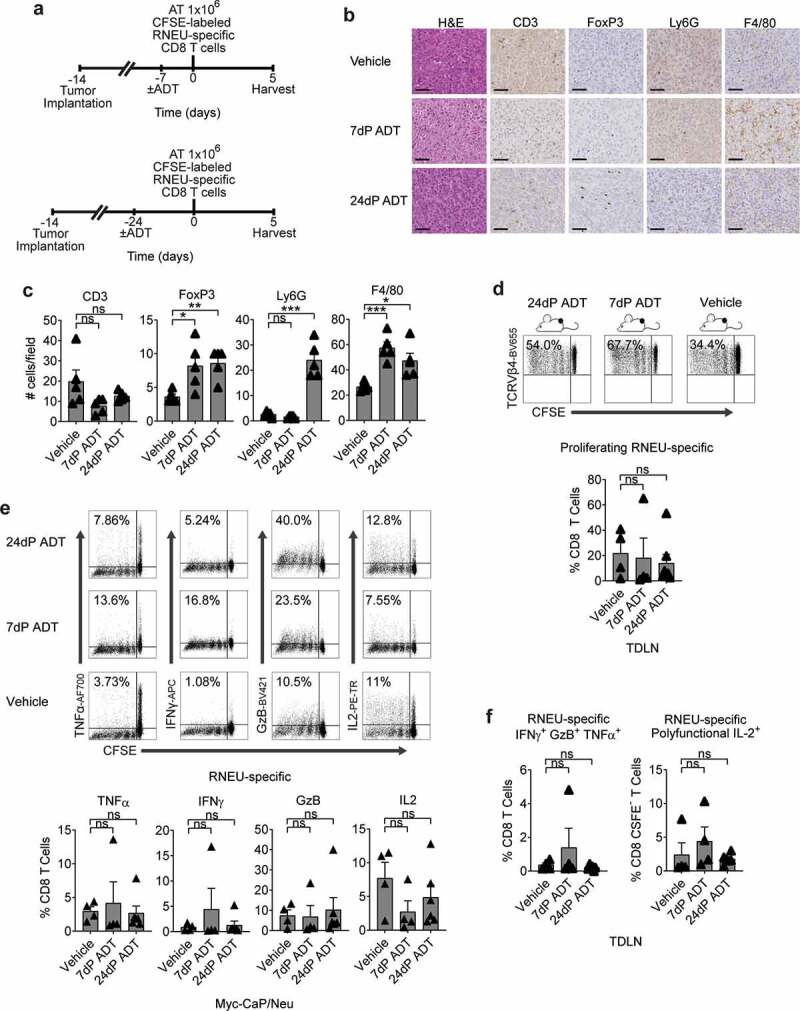Figure 6.

Androgen-Deprivation Therapy (ADT) Does Not Significantly Attenuate Tumor-Induced RNEU-specific CD8 T Cell Tolerance.
(a) Treatment scheme for tumor implantation with 1 × 106 Myc-CaP/Neu cells. Seven or twenty-four days after androgen-deprivation (ADT) was administrated, 1 × 106 high-avidity CFSE-labeled Thy1.2+ RNEU420–429-specific CD8 T cells were adoptively transferred (AT) into the mice. On day 5, tumor-draining lymph nodes (TDLNs) were harvested and analyzed by flow cytometry. (b) Tumor-infiltrating lymphocytes (TIL; CD3), regulatory T cells (FoxP3), myeloid-derived suppressor cells (Ly6 G), and macrophages (F4/80) of indicated murine allografts (representative immunohistochemistry; repeated x 2). Scale bar = 50 μm. (c) Counts of immune cells in tumor microenvironment (TME). (d) Percentages of proliferating TCRVβ4+ CD8 T cells in TDLNs (representative flow plots and quantification; n ≥ 4 per group, repeated x 2). (e) Percentages of cytokine production by RNEU-specific TCRVβ4+ CD8 T cells (representative flow plots; repeated x 2). (f) Percentages of polyfunctional TCRVβ4+ CD8+ IFNγ+GzB+TNFα+ in TDLNs (n ≥ 4 per group, repeated x 2). Proliferating TCRVβ4+ CD8 T cells, and their cytokine production, were calculated as fraction of TCRVβ4+ CD8 T cells. IL-2 production was evaluated as a fraction of polyfunctional IFNγ+GzB+TNFα+ TCRVβ4+ CD8 T cells.
